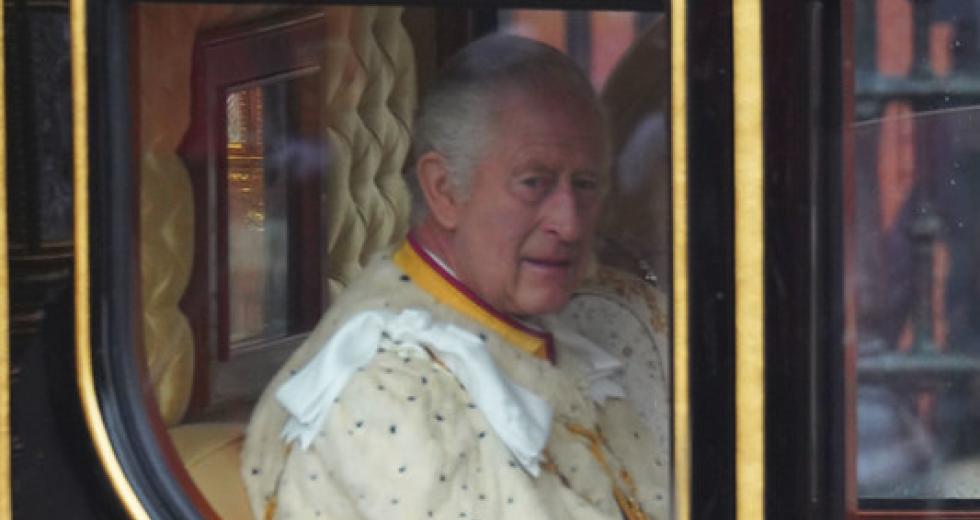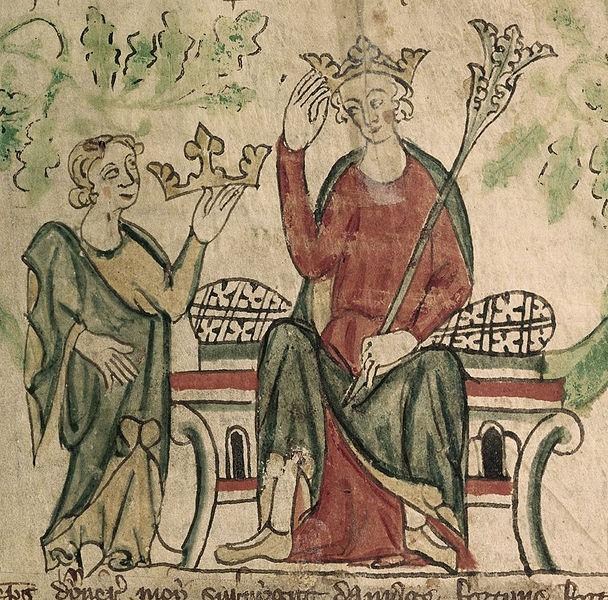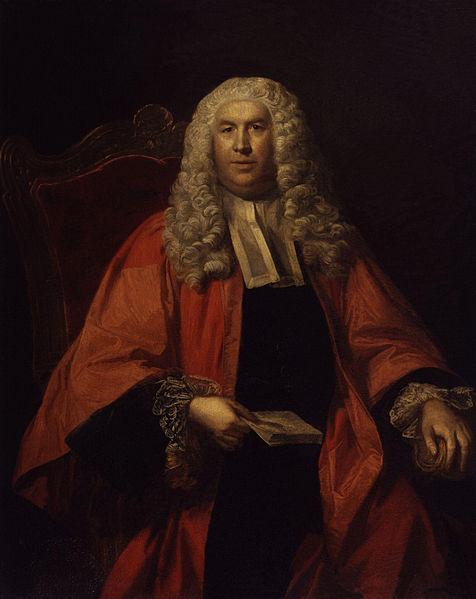
On 6 May this year, Charles Windsor was crowned King at an estimated cost to the British public of £50 to 100 million. Was this mere theatrical display—and a wet one at that, since it rained all day—or was it more significant than that?
According to the BBC, the Coronation serves a purely symbolic purpose, since the monarch automatically succeeds to the throne on the death of his predecessor. This is view held by a team at King’s College London, as well as by the self-styled Constitution Unit at University College London, which maintains that the oath is of overwhelmingly ‘symbolic significance’ and that coronations themselves are old hat because Continental monarchies do not have them.
Yet a report by the House of Commons published in May this year, and written by David Torrance, clearly states that the Oath is ‘the only aspect of the ceremony that is required by law’. Indeed, when the Archbishop of Canterbury invites Charles in the Coronation ceremony to take the Oath, he does so after declaring that it is ‘enshrined in law’ (see 0:26–0:28 in the video of this part of the ceremony). Thus, we are dealing with far more than expensive ceremonial, since the Oath is binding and is described as pertaining to the peoples of the United Kingdom of Great Britain and Northern Ireland and to those living in the Crown’s ‘other Realms’.
What, then, are the legal obligations that King Charles has agreed to as the terms of his reign? Moreover, and in order to grasp the full scale of the implications of these obligations, how do those agreed to by Charles compare with those endorsed by his immediate predecessor, Queen Elizabeth II?
In order to grasp the full timespan over which these obligations have extended, let us begin with this second question before considering the obligations that Charles (and, conceivably, Elizabeth too) solemnly agreed to follow.

Queen Elizabeth II early in her reign. Image: BiblioArchives / Library Archives (Canada) | licence CC BY 2.0
Comparing King Charles III’s and Queen Elizabeth II’s oaths
Before going any further, we do need to understand the extent to which the undertakings made by Charles and Elizabeth overlapped, since we will then be able to assess whether the implications of King Charles’ undertakings extend also to Queen Elizabeth. In establishing the extent and areas of overlap, we are comparing the digital copy of the Queen’s oath—appearing for the first time in the National Archive in June 2022 on the occasion of the Queen’s Platinum Jubilee—with the video record of the verbal oath made by Charles on 6 May, and also footage of his adding his signature to the written version of his oath.
Incidentally, we rely on the video footage where Charles’ Coronation Oath commitments are concerned because no written copy of his signed oath is available since the Coronation. Although this is surprising for such an important document, no official copy of the Queen’s oath was, as discussed elsewhere, available until June 2022.
So, what does a comparison of the oaths of the two sovereigns reveal? Where the visual elements of the oath are concerned, the Queen adds her signature above the text while footage of the King signing his oath in May (see 3:25–3:38) shows him adding his signature below the text. If you think about it, the act of signing below a text shows that the man or woman concerned has agreed to the text appearing above their signature and shows that the text has not been added to. By contrast, the appearance of a signature above the text (particularly given Charles’ decision to sign beneath the text) is distinctly anomalous and is one of a large number of anomalies that call into question the legitimacy of the Queen’s coronation and with it, her signed oath.

The digital version of Queen Elizabeth’s Coronation Oath in the National Archives
In terms of what Elizabeth and Charles swore, the elements in their two oaths are identical, with the small exception that Charles swore in respect of the peoples of the United Kingdom and Northern Ireland and ‘other Realms’ while the Queen listed out the other realms. So, the way is now clear to examine objectively the elements that both Charles and Elizabeth swore to observe.
The elements that Charles and Elizabeth swore to uphold
In addition to an undertaking to uphold the established church of Great Britain, Charles—and Elizabeth before him—swore to observe not only the ‘laws and customs’ of the realm but also ‘the laws of God’. What is the significance of these two phrases, and what obligations do they place on those formally undertaking to honour them? We will look at them in turn.
a. The laws and customs
Taking the phrase ‘laws and customs’ first, this phrase was found in the first complete version of the Coronation Oath that we have, namely that of King Edward II in 1308. Thereafter, according to the scholar H.G. Richardson, the words in King Edward II’s oath remained in coronation oaths for a further almost four hundred years. What is the precise significance of this phrase?

The coronation of Edward II of England (1308). Image: British Library, public domain
According to Hoyt’s scholarly article of 1956, ‘the laws and customs of the realm’ refer to the whole body of English law and custom’. According to Hoyt, this brings within its ambit not only charters and enactments and the ‘common law’ (‘in the sense of law administered in the king's courts’; see Episode 2 of UK Column’s A Dissident’s Guide to the Constitution) but also ‘the law, administered in all other courts which did not necessarily have a royal source or find a place in charters’.
So Hoyt is telling us that the phrase ‘laws and customs’ refers to common law and not necessarily to written laws. This means that, from a historical perspective, the phrase ‘laws and customs’ does not refer to statute law but rather to common law.
Moreover, the most authoritative jurist of the thirteenth century, Henry de Bracton, sometime Chancellor of Exeter Cathedral, stated that ‘the English hold many things by custom which they do no not hold by law’ and that ‘kings need only to have allowed the custom for it to be granted’. This means that Magna Carta falls within the scope of ‘customs’—and with that, so do people’s rights as ‘freemen’, along with their right to a trial by jury (a right specifically granted in Article 39 of Magna Carta) and the right to invoke lawful rebellion should the king renege on his duties (a right enshrined in Article 61 of Magna Carta and invoked by 25 barons in the House of Lords in 2001 and still in force).

Henry De Bracton’s On the Laws and Customs of England. Image: Yale Law Library | licence CC BY 2.0
By way of corroboration, another text—this one by Richard O’Sullivan, The Inheritance of Common Law (1950)—states that:
Hubert Walter (afterwards Archbishop of Canterbury) and Henry of Bracton were at pains to argue that it is not absurd to call the Law and Customs of England, though they are not written, by the name of law.
The implications are clear, not only for the people of Britain but also of the Commonwealth. It is that they can take King Charles at his word and lawfully assert their right to a trial by jury. With this comes the power of the jury to engage in annulment by jury, where the jury has the power to acquit someone guilty of infringing a piece of legislation where its jurors determine that the legislation has no validity.
According to William Keyte, this is where democracy comes into its own, with the power of jurors to annul bad legislation. Significantly, Charles’ oath, with its undertaking to observe the ‘laws and customs’ of the realm, provides the necessary underpinning to this assertion of the democratic principle.
Having seen the full force of the commitment to the ‘laws and customs’ of the realm, let us move on now to Charles’ second undertaking, namely to observe the ‘laws of God’. What does this add?
b. The laws of God
Elizabeth II undertook in her oath to follow ‘the laws of God’, and this commitment was repeated in Charles’ oath. The first five books of the Bible, the Pentateuch, make frequent reference to God’ laws, showing us that these are regarded as the last word in law, and therefore immutable. You can glean this from the following passages in Deuteronomy, for example:
4:2 Ye shall not add to the word which I command you, neither shall ye diminish aught from it, that ye may keep the commandments of the Lord your God which I command you.
12:32 What thing soever I command you, observe to do it: thou shalt not add thereto, nor diminish from it.
We can clearly see how Deuteronomy precludes making additions to God’s laws, and this means that any monarch with these words in his oath must resist adding his signature to new legislation, since otherwise he stands in breach of their oath. Queen Elizabeth II signed no fewer than 4,272 statutes into existence in the span of her reign between 1953 and 2022—and the fact that this breached her oath not only invalidates the statutes, but also those institutions that derive their authority from the monarch, including HM Courts, HM Revenue and Customs, and HM Government. Note that a commitment to support the ‘laws and customs’ of the Realm corroborates this view, since, according to Hubert Walter and Henry de Bracton, the phrase ‘laws and customs’ explicitly excludes codified law.
As if this is not significant enough, an undertaking to be bound by the ‘laws of God’ has further implications. Indeed, according to Deuteronomy, the handing of power to a ‘stranger’, or what we might refer to as a foreign power today (this double meaning of ‘strange’ and ‘foreign’ occurs in French too, in the word étranger) is a breach of God’s laws. Here are the relevant sections from Deuteronomy that outlaw handing power to a stranger in the land:
17:14 When thou art come unto the land which the Lord thy God giveth thee, and shalt possess it, and shalt dwell therein, and shalt say, I will set a king over me, like as all the nations that [are] about me;
17:15 Thou shalt in any wise set [him] king over thee, whom the Lord thy God shall choose: [one] from among thy brethren shalt thou set king over thee: thou mayest not set a stranger over thee, which [is] not thy brother.
What is the implication of this? It is that the act of passing powers to a foreign body, be it the European Union or the World Economic Forum, is in conflict with God’s laws. This means that when Elizabeth II provided her assent to the European Communities Act in 1972 or to the Lisbon Treaty in 2009, she broke her oath, since both pieces of legislation handed British powers to overseas bodies.
The jury is out on King Charles and on whether he will continue to lend his support to the World Economic Forum (WEF) as he did when he was the Prince of Wales. We do know that he continues to support their and the UN’s policies for lower carbon emissions—his involvement with the ‘Climate Countdown’ initiative on 28 June is testament to this—and so his actions in support of overseas bodies must be closely monitored.
More generally, there is the larger question as to whether the action of the monarch is in congruence with divine law; and so we finish by considering this all-important question.
Divine law as the ultimate arbiter
Over time, esteemed minds have suggested that divine law takes precedence over human law where the latter opposed divine principles. Thus, Aristotle in his Nichomachean Ethics (V, 7) states that what was ‘just by nature’ was not always the same as what was ‘just by law’; and the Justinian Code continues this theme in its discussion of common law (iūs commune) and its treament the distinction between sentences that follow natural justice and those that follow the letter of the law. So too does John of Salisbury, who, in his Policraticus, written in the twelfth century, recommends that where human law is at variance with natural law, the human law must not be enforced.
This line of thinking continued with the great thirteenth century Italian theologian, Thomas Aquinas, asserting that ‘"[E]very human law [that] is incompatible with the natural law, will not be law, but a perversion of the law." In the eighteenth century, Sir William Blackstone, the great compiler of English common law and chief justice of England, stated that:
[I]f any human law should allow or enjoin us to transgress the natural or divine law then we are bound to transgress the human law, or else we must offend both the natural and divine.

Sir William Blackstone (anonymous portrait). Image: National Portrait Gallery
With so many eloquent voices asserting the importance of divine over human principles, it is time that we now, in the twenty-first century, consider the how an oath to maintain the ‘laws and customs’ of the Realm can best be reconciled with ‘the laws of God’. Deuteronomy provides some pointers, and the recent coronation of Charles sets the scene for a debate on these important issues—not just in Britain, but in all the realms affected by his Coronation Oath.
Key questions arising from this will concern, firstly, whether statute law should take a back seat to common law; and, moreover, whether powers previously passed to global bodies should be handed back to the nation state. At this point, just a few months following Charles’ coronation, it is vital that constitutionalists, lawyers, historians, and those with an interest in the divine participate in a debate concerning how best to ensure that the ‘laws and customs’ of the realms covered by the Oath are in alignment with ‘the laws of God’. Doing this will ensure that the monarch does not default on his oath, but it will also ensure that human forces are finely balanced with higher and positive divine values.
Main image: DCMS | public domain

